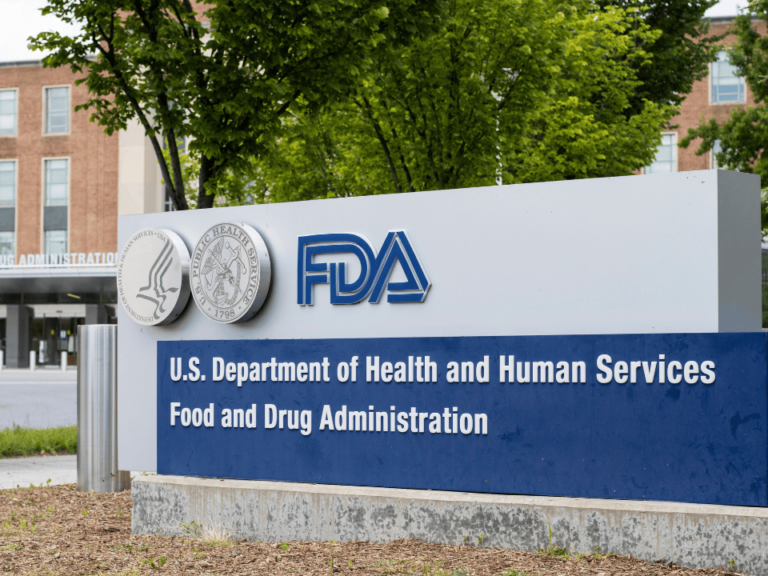May 2024 marks the 20th anniversary of the publication of papers on the role of the EGFR mutation in lung cancer. This is a seminal event that changed the history of this disease and that can be traced back to one reason why cancer mortality has been declining in the United States.
The Cancer Letter and the Cancer History Project explore this development in a comprehensive multimedia series consisting of opinion pieces, our real-time coverage, historical documents, and interviews with scientists, clinicians, drug regulators, and cancer survivors.
This multimedia series is guest-edited by Suresh S. Ramalingam, a lung cancer expert, executive director of Winship Cancer Institute of Emory University, and editor-in-chief of the journal Cancer.
This is the first story in a series that will explore the process of discovery of the EGFR mutation, the learning curve for using the drugs that target it, and the unparalleled impact on patients with lung cancer and other diseases.
When I started fellowship training in the year 2000, the response from everyone when I mentioned my interest in lung cancer was nearly the same: “Are you sure?”
This experience was not unique to me; every thoracic oncologist at that time would likely relate to that. The basis was not hard to understand: lung cancer was a highly lethal disease, with practically one proven chemotherapy agent (platinum) that improved the 1-year survival rate by 10% for patients with stage 4 disease.
Even in uncommon situations where lung cancer was diagnosed at an early stage, survival was suboptimal despite complete resection. The stigma associated with tobacco smoking, lack of treatment options, and high mortality were driving the widespread nihilism for lung cancer.
It was not uncommon for patients to be directly referred to hospice following the diagnosis of lung cancer. In fact, the “Big Lung Trial” (published in 2004) compared platinum-based chemotherapy to best supportive care and demonstrated a 9-weeks improvement in median overall survival with the former. It hardly mattered if a patient had non-small cell lung cancer (NSCLC) (~85%) or small cell lung cancer (~15%).
It was during those days that I had the fortune of caring for patients on a clinical trial with an experimental targeted therapy, ZD1839. This small molecule was an inhibitor of the epidermal growth factor receptor (EGFR) which was overexpressed in a high proportion of patients with NSCLC.
These patients developed an acne-like rash and diarrhea within a few days of treatment; an occasional patient would achieve a very impressive clinical response. My mentor, Dr. Chandra Belani (University of Pittsburgh), would make it a point for all the fellows in his clinic to see the responding patients, to highlight the potential of this novel agent to improve patient outcomes.
The CT scans of the responding patients would demonstrate remarkable tumor shrinkage, something that was not seen with standard chemotherapy.
This clinical trial (IDEAL-2) would go on to demonstrate a very modest response rate of 12% for ZD1839 in patients with treatment-refractory NSCLC (Kris M et al., JAMA, 2003).
A contemporary trial (IDEAL-1) conducted in Japan noted a higher response rate of 19% with the same drug (Fukuoka et al., J Clin Oncol, 2004).
In May 2003, the FDA provided accelerated approval for ZD1839, now known as gefitinib, for patients with lung cancer who progressed on standard therapy (The Cancer Letter, Sept. 27, Nov. 8, 2022; May 9, 2023).
Following approval of gefitinib, practically every patient with NSCLC would receive it; the therapeutic responses were very infrequent, but when this occurred, it was dramatic. It was not uncommon for some patients to walk into the clinic only 2-3 weeks into therapy, when they had been wheeled into the clinic during the prior visit.
Quickly, the key issue in the field was to understand the biological basis for the response in a small subset of patients.
Also significant was the fact that this drug did not show clinical efficacy in other cancers besides NSCLC. Through several expanded access programs of gefitinib, we learned that certain clinical characteristics were associated with a favorable clinical response: never-smokers, adenocarcinoma histology and people of Asian origin.
These observations narrowed down the biological basis as being very specific to lung cancer and to subsets of patients with these clinical characteristics. However, there was no readily available explanation to connect the dots.
Studies were done to determine if EGFR protein expression in the tumor could predict clinical response; EGFR gene copy number in the tumor cells was studied as another biomarker.
These efforts provided mixed results to keep the investigations and line of inquiry going, without being the clear answer.
Then, in May 2004, it all changed.
A publication by Lynch et al. in The New England Journal of Medicine identified specific mutations in the EGFR gene in patients who experienced clinical response to gefitinib. The authors sequenced the coding region of the entire EGFR gene; 8 out of 9 patients with a response to gefitinib harbored the mutation; the mutation was not seen in 7 patients without a clinical response (The Cancer Letter, April 30, 2004).
The mutations were mostly seen in either exon 19 or 21; these somatic mutations were unique to lung cancer based on evaluation of cell lines and tumor tissues from a variety of cancers. This finding unquestionably changed the course of lung cancer; that this paper has been cited nearly 14,000 times attests to its impact on the field.
My visits with patients look dramatically different from the days I started practicing oncology; there is more hope for long-term survival and patients are thriving despite advanced stage lung cancer, for a large part.
A second paper, by Paez et al. in Science, reported the same somatic mutations in 15 out of 58 tumors from Japanese lung cancer patients and 1 out of 61 from tumors of patients from the United States.
This observation provided an explanation for the higher response rate for gefitinib in Asian patients. Shortly thereafter, Pao et al. reported that 7 of 15 tumors from patients who were never-smokers harbored the mutation, compared to 4 of 81 patients who were former or current smokers (PNAS 2004).
These findings were confirmed by many groups in course of time and explained the reason certain clinical characteristics were associated with response to EGFR TKI based on the higher prevalence of EGFR TKI sensitizing mutations.
OSI-774 (erlotinib), another EGFR inhibitor received FDA approval in 2004, based on the results of a randomized trial conducted by the National Cancer Institute of Canada. The trial compared erlotinib to placebo in patients with advanced NSCLC following progression on standard therapies; there was a modest improvement in overall survival by 2 months in this study in unselected patients.
Several other EGFR inhibitors were also developed by multiple companies, including second-generation inhibitors that caused irreversible EGFR inhibition (afatinib, dacomitinib).
Interestingly, monoclonal antibodies targeting the external domain of the EGFR did not demonstrate clinical efficacy in NSCLC and did not gain a foothold in this disease. The irreversible inhibitors were associated with a higher level of toxicity with only modest efficacy gains.
The IPASS trial conclusively proved that the presence of a sensitizing mutation was the definitive biomarker that predicted response to EGFR TKI; this trial was done in a clinically enriched Asian population of patients with NSCLC that included lung adenocarcinoma and never-smokers (Mok et al., NEJM, 2009).
Patients with metastatic disease without any prior therapy were randomized to gefitinib or chemotherapy. The study was initiated prior to the discovery of the EGFR mutation; archived tumor tissues were obtained post-hoc in approximately 400 patients from the study and mutation analysis was conducted.
For patients with an EGFR mutation, gefitinib was superior to chemotherapy, but was inferior in patients without the mutation. Subsequently, several studies compared the efficacy of EGFR TKI inhibition to platinum-based chemotherapy specifically in EGFR mutation positive patients; they consistently showed benefit in favor of targeted therapy over chemotherapy.
Taken together, the standard of care for metastatic NSCLC changed, and the first step towards precision medicine was firmly in place.
The discovery of EGFR mutation was quickly followed by the molecular characterization of T790M as the most common acquired resistance mechanism to targeted therapy, which developed in less than a year regardless of the extent of initial benefit with TKI.
Soon, the third-generation EGFR inhibitors that blocked not only the exon 19 and 21 mutations, but also T790M entered the clinic.
Osimertinib emerged as the drug of this class with studies documenting response rate of nearly 70%; this drug also had effectiveness against brain metastasis. It proved superior to platinum-based chemotherapy in the acquired resistance setting and received FDA approval for second-line therapy in EGFR mutated patients.
We then studied osimertinib in the first-line therapy setting, and demonstrated superiority over gefitinib and erlotinib, with improvement in overall survival. Now, osimertinib is the preferred first-line therapy for patients with EGFR mutated advanced stage disease.
The high level of mutation selectivity of the third-generation drugs provides for a treatment with relatively minimal adverse events for patients. The median survival for stage 4 EGFR-mutated NSCLC is now 3-4 years, thanks to these advances.
More recently, osimertinib received FDA approval as adjuvant therapy for EGFR mutated early-stage NSCLC, based on the results of a large, randomized trial, thus taking targeted therapy to the curative setting.
The discovery of EGFR mutations and the ability to achieve robust clinical responses with targeted therapies soon launched the search for other driver mutations in lung cancer.
Technological advances that made genetic sequencing easier and less expensive helped accelerate this process. In 2007, a gene rearrangement that conferred dominant oncogenic potential involving the anaplastic lymphoma kinase (ALK) was reported in a subset of patients with lung adenocarcinoma.
Crizotinib, which was in phase I clinical trials as a targeted therapy against MET, was quickly studied in a small group of patients with ALK gene rearrangement, based on its ability to inhibit this target.
The therapeutic impact of this approach was immediate and impressive; partial response rate of nearly 70% was observed and soon crizotinib was approved by the FDA.
This inspired the development of specific ALK inhibitors including ceritinib, alectinib, brigatinib and lorlatinib, which all proved to be superior to crizotinib. These agents are all approved for ALK positive NSCLC.
Gradually, targeted therapies were developed for ROS1, RET, BRAF V600E, MET mutation, EGFR exon 20 insertion, NTRK and HER-2 mutations. Most recently, two new agents targeting KRAS G12C mutation, observed in nearly 10-12% of lung adenocarcinoma, have received FDA approval. This is no mean achievement given that KRAS was once thought to be an undruggable target.
Today, nearly 30-40% of patients with lung adenocarcinoma are treated with targeted therapy for metastatic disease, with resulting median survival ranging from 3-7 years. Next-generation sequencing is part of standard diagnostic work up for every patient with lung adenocarcinoma.
The ability to obtain molecular diagnosis by sequencing cell free DNA in plasma has greatly enhanced precision medicine in lung cancer. New challenges as result of these advances, including acquired resistance to targeted therapy, are being studied extensively.
A new generation of lung cancer clinicians and researchers have entered the field inspired by the exciting developments of the past two decades. The mortality related to lung cancer is declining by 2-4% per year in the U.S., which could be partly attributed to targeted therapies.
My visits with patients look dramatically different from the days I started practicing oncology; there is more hope for long-term survival and patients are thriving despite advanced stage lung cancer, for a large part.
This does not mean our work is done; with every research advance, new questions emerge, and new opportunities are on the horizon.
The lessons learned over the past two decades will help us navigate the exciting future that lies ahead.
At this juncture of the 20th anniversary of the discovery of EGFR mutation, I express my sincere appreciation and gratitude to all those whose work made this possible; here’s to progress, hope and the relentless pursuit of better outcomes!
Targeted therapies approved for lung cancer
| Molecular abnormality | Prevalence (among lung adenocarcinoma pts) | Approved agents |
|---|---|---|
| EGFR (exon 19 & 21) mutation | 15-35% | Gefitinib Erlotinib Afatinib Dacomitinib Osimertinib Erlotinib + Ramucirumab |
| EGFR Exon 20 insertion | 2-3% | Amivantamab |
| EGFR (atypical mutations: G719, L861Q, S768I) | 2-3% | Afatinib |
| ALK gene rearrangement | 3-7% | Crizotinib Ceritinib Alectinib Brigatinib Lorlatinib |
| Her-2 mutation | 2% | Trastuzumab deruxtecan |
| ROS1 fusion | 1% | Crizotinib Entrectinib Repotrectinib |
| RET fusion | 1% | Selercatinib Pralsetinib |
| MET exon 14 skip mutation | 3-4% | Capmatinib Tepotinib |
| KRAS G12C mutation | 12% | Sotorasib Adagrasib |
| NTRK fusion | 0.5% | Larotrectinib Entrectinib |
| BRAF V600E mutation | 1-2% | Dabrafenib + Trametinib Encorafenib + Binimetinib |











